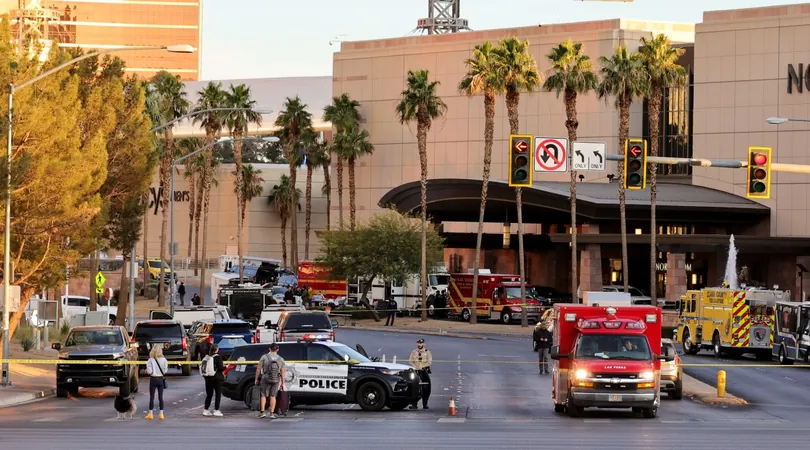
Turo CEO Speaks Out: Violent Attackers Slipped Through Foolproof Background System
2025-01-03
Author: Michael
In a shocking incident that has rocked the nation, two individuals rented vehicles through Turo, a popular peer-to-peer car-sharing service, and went on to commit heinous acts of violence earlier this week. The first assailant, a military veteran, rammed a Ford F-150 Lightning into a crowded area, resulting in the tragic deaths of at least 15 people. Meanwhile, an active-duty Green Beret used a rented Tesla Cybertruck to carry out a devastating explosion outside the Trump International Hotel in Las Vegas, leading to his own fatal act of suicide.
Turo's CEO, Andre Haddad, expressed his outrage over the misuse of the platform and stated that the company is "working around the clock" to comprehend how such an atrocity could have been committed through their service. The harrowing events raise the essential question: how could a platform like Turo shield itself from such acts?
Described as the "Airbnb for cars," Turo allows vehicle owners to rent out their cars, catering to both casual and full-time hosts. With around 27 million trips facilitated in over a decade, Turo claims that less than 0.10% have resulted in serious incidents, such as theft.
Haddad emphasized that despite Turo’s efforts in screening renters through its proprietary "Turo Risk Score," utilizing over 50 internal and external data sources, the attackers had clean criminal records and valid driver’s licenses. "Even with the most stringent background checks, these individuals could have easily accessed vehicles from any traditional rental service," he noted, adding that there was nothing that would have raised red flags for law enforcement.
The unfortunate reality is that despite Turo's commitment to safety, there have been reports of criminals exploiting the platform in the past, with some users sharing experiences of renting to individuals with dubious backgrounds. As Turo embarks on re-evaluating its safety measures, it’s evident that violence like this raises larger questions about how technology-driven services might adjust to preemptively thwart similar misuse.
Looking ahead, Turo is investing in improving its risk assessment algorithm and has also formed a team of former law enforcement professionals to better address future risks. "We’re working with national security and counterterrorism experts to devise strategies that would help us mitigate any future threats," stated Haddad.
This incident not only casts a shadow over Turo’s reputation but also underscores the urgent need for comprehensive safety protocols in the gig economy. As the platform evolves, the hope remains that it will bolster its measures and contribute to preventing such tragic occurrences in the future.
Stay tuned as we continue to track Turo's response to this alarming situation and inform you of any developments that emerge from this crisis.



 Brasil (PT)
Brasil (PT)
 Canada (EN)
Canada (EN)
 Chile (ES)
Chile (ES)
 Česko (CS)
Česko (CS)
 대한민국 (KO)
대한민국 (KO)
 España (ES)
España (ES)
 France (FR)
France (FR)
 Hong Kong (EN)
Hong Kong (EN)
 Italia (IT)
Italia (IT)
 日本 (JA)
日本 (JA)
 Magyarország (HU)
Magyarország (HU)
 Norge (NO)
Norge (NO)
 Polska (PL)
Polska (PL)
 Schweiz (DE)
Schweiz (DE)
 Singapore (EN)
Singapore (EN)
 Sverige (SV)
Sverige (SV)
 Suomi (FI)
Suomi (FI)
 Türkiye (TR)
Türkiye (TR)
 الإمارات العربية المتحدة (AR)
الإمارات العربية المتحدة (AR)